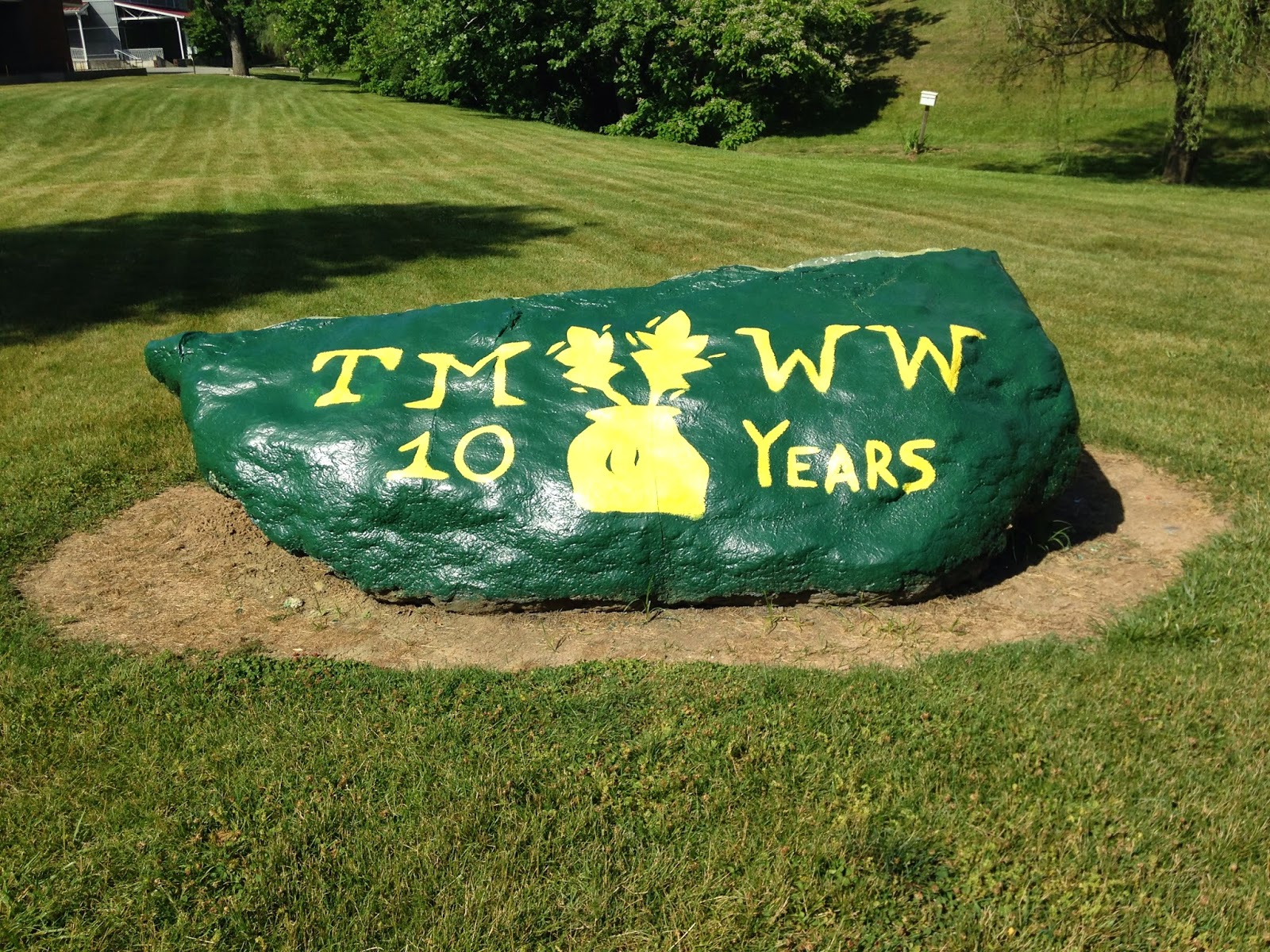 |
| 2014 At Tinker Mountain - Hollins University |
Often when I get home
from a workshop and look through peer review comments on a draft, I feel
overwhelmed. Having recently returned from a week at the Tinker Mountain Workshop, I am once
again faced with the question of how to begin my revision process. Sometimes I
spin around for weeks or months deciding where to begin and what to do.
 |
| A Beautiful Campus & A Great Group of People |
Joni B. Cole, has a
wonderful book on the topic: Toxic Feedback: Helping Writers Survive and Thrive (2006) that I
have found useful in thinking about the revision process. One of the topics she
addresses is what to do with the feedback you get from others.
In her section, Tips for Processing Feedback, she offers
these useful suggestions:
Be Open - In a workshop setting
– listen thoughtfully and curb your desire to defend your
work. You may - in your heart - disagree and that’s okay, because the
ultimate decisions about your work rest with you.
Resist the Urge to Explain - Remember that readers can only work with what’s on a page
– so you need to know where it’s not working.
Little by Little - “It is easy
to get overwhelmed when processing feedback, especially if you try to take it
all in at once.” Cole suggests that writers sift through all the
comments once then put them away and select one of those things to focus on for
the next revision. “For example: it
your plot is slow and main character shallow – on your next draft move your
plot forward and tackle the character issue on a next draft.”
Ignore Feedback -- until you’re ready for it - “The value of
feedback, and then putting it in your mental lockbox as you push forward, is
that this allows your unconscious to quietly process the outside information in
a way that informs your writing in sync with your instincts –without slowing
you down.”
Try Out the Feedback - For example: “If
your main character isn’t likable, write a scene inside or outside the story
that shows him doing something endearing. Even if you decide not to use the
scene, this is a great exercise in character development. No writing is a waste
of effort."
Give Yourself Time - If
you can’t tell if you’re making things better or worse, Cole says, --- "STOP! Take a break. Take a
walk. Start something new. Let your subconscious work on it again." You
should be able to see when feedback is useful to improve your vision for the
work. If it’s not helping, wait a while and come back to it.
Cole makes a strong case
that after finishing a draft and subsequent revisions writers need to find a
suitable reader for the work. A suitable reader is rarely someone who loves
you unconditionally, but instead, the
suitable reader is someone who gets what you’re doing, and who is willing
to give thoughtful, insightful impressions; someone who reads carefully and who
understands the struggles writers face, but who has sufficient tact to be
honest and perceptive; someone who is not inclined to be unkind.
Cole's book is a gold
mine of useful insights. Processing feedback effectively means being
receptive to hearing a variety of opinions, but filtering it all through your
own writer's lens.
============================
About Jan Bowman
Winner of the 2011 Roanoke Review Fiction Award, Jan's stories have been nominated
for Pushcart Prizes, Best American Short
Stories, and a Pen/O’Henry award. Glimmer Train named a recent
story as Honorable Mention in the November 2012 Short Story Awards for New
Writers.
A recent story was a
finalist for the 2013 Broad
River Review RASH Award for Fiction,
another story was a 2013 finalist in the Phoebe Fiction Contest; another was a 2012 finalist in
the “So
To Speak” Fiction Contest. Jan’s fiction has appeared in numerous publications including, Roanoke Review,
Big Muddy, The Broadkill Review, Third Wednesday, Minimus, Buffalo Spree (97),
Folio, The Potomac Review, Musings, Potato Eyes and others. She is working on
two collections of short stories while shopping for a publisher for a completed
story collection, Mermaids & Other
Stories. She has nonfiction publications in Atticus Review, Trajectory and Pen-in-Hand. She writes a weekly blog of “Reflections” on the writing life and posts regular interviews
with writers and publishers. Learn
more at: www.janbowmanwriter.com (note: homepage under revision right now) so visit
blog: http://janbowmanwriter.blogspot.com
Facebook: janbowman.77@facebook.com

No comments:
Post a Comment